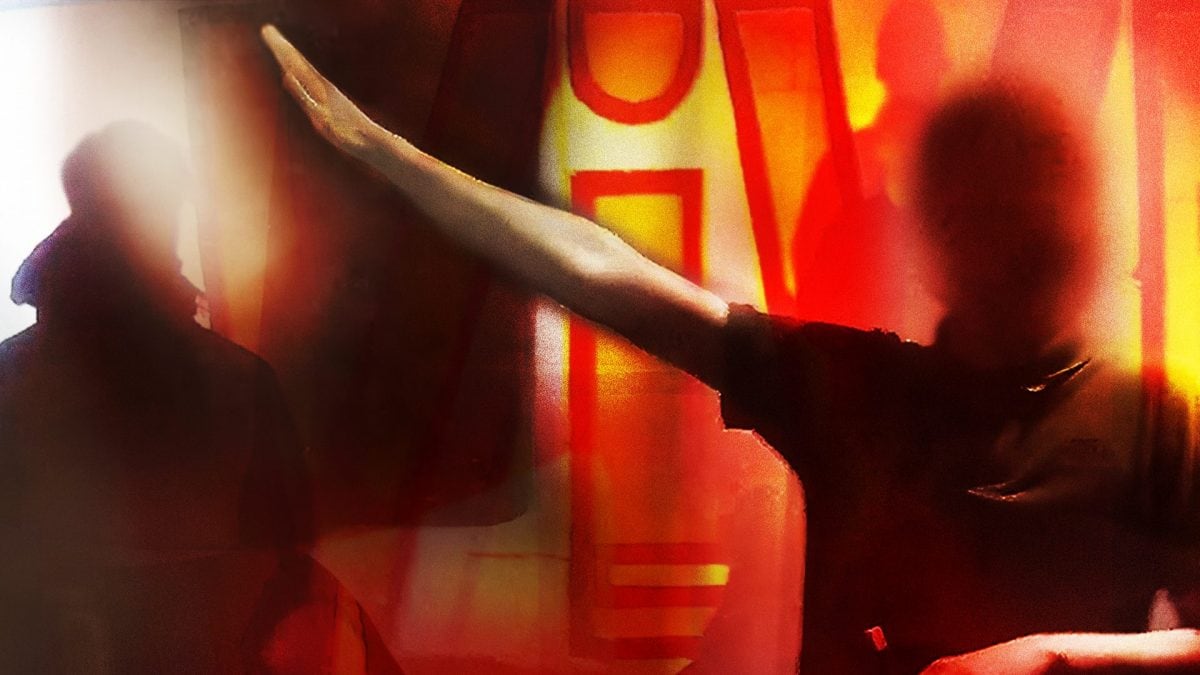Reuters (6/27/24) reported:
A reporter from online newspaper Fanpage [6/14/24] infiltrated Gioventu Nazionale, Meloni’s rightist Brothers of Italy youth movement, and recorded videos in which members declared themselves fascists and shouted the Nazi slogan “Sieg Heil.”… The investigation also showed a Gioventu Nazionale member mocking Brothers of Italy senator Ester Mieli for her Jewish origin, and revealed chats on messaging platforms where militants took aim at ethnic minorities.
Meloni’s political opponents used this footage against her (Guardian, 6/27/24). She eventually condemned the antisemites (Euronews, 6/29/24). Haaretz (6/30/24) said:
This 12-minute video showed National Youth activists, including two senior figures, singing a celebratory song in honor of the disgraced dictator Benito Mussolini, chanting “Sieg Heil!” and glorifying the Nuclei Armati Rivoluzionari (Armed Revolutionary Nuclei)—a neofascist terrorist group that was active in Italy in the late 1970s and early ’80s, committing over 100 murders.
Neofascist roots
This shouldn’t be a big surprise to anyone who has been paying attention to Italian politics. The nation’s small but vibrant Jewish population has been skeptical of Meloni’s ascendence and that of her party, Brothers of Italy. The Jewish Telegraphic Agency (9/30/22) explained two years ago:
Meloni’s first stop in politics was in the youth movement of the Italian Social Movement, known as MSI, a neofascist party founded in 1946 by people who had worked with Hitler and Benito Mussolini, Italy’s fascist leader from 1922 to 1943. Brothers of Italy is closely tied to the group, even housing its office in the same building where MSI operated and using an identical logo, a tricolor flame.
With Meloni at the helm of one of Europe’s biggest economies, she is not a minor player; in fact, at the last G7 conference, she stood out as a confident leader (AP, 10/18/23; Wall Street Journal, 6/13/24) over a flock of feeble, vulnerable centrists and conservatives.
One of those was Rishi Sunak, who has since lost his job as British prime minister and Conservative Party leader (Guardian, 7/5/24). Another is President Joe Biden, who is being pressured to drop out of the U.S. presidential race due to concerns regarding his cognitive health (New York Times, 6/28/24). And French President Emmanuel Macron has been weakened by the poor performance of his party in snap parliamentary elections (Reuters, 7/7/24).
The summit took place after Meloni’s party increased its share of the popular vote in the European Union election, and she is now “poised to play a critical role shaping the future direction of EU policy in Brussels” (Politico, 6/13/24).
Late to the story—or absent
The New York Times (6/11/24) has positively portrayed Meloni as a “critical player” as the host of the G7 conference, and has been upbeat about her rising stature generally. (Her anti-Russian politicking “sealed her credibility as someone who could play an influential role in the top tier of European leaders”—2/7/24.) The Times (7/2/24) came late to the Brother of Italy story , leading with the news of her public relations drive to denounce the racist content. The Washington Post, which also had previously normalized her as a European politician (6/6/24), covered the story in a similar fashion with AP copy (7/3/24).
NPR missed the story. So did CNN. The Wall Street Journal, whose editorial board had said she was “governing with some success” (6/13/24), and whose news coverage has portrayed her as a pragmatist (6/13/24), wasn’t interested in the scandal either.
This lackluster coverage, which at best focused on Meloni’s self-interested damage control rather than the dark ideology at the center of her movement, is confounding. Western media have been rightfully fretting about the far right’s impressive showing in recent EU parliamentary elections (New York Times, 6/9/24). Meloni’s reputation as a strong leader among ailing centrist European leaders is bolstered by other far-right parties making impressive gains.
All of these parties, known for their anti-immigration and anti-multicultural positions, also have tinges of right-wing antisemitism, including Britain’s Reform Party (Haaretz, 6/23/24), Germany’s Alternative for Deutschland (Deutsche Welle, 8/5/23) and France’s National Rally (AP, 7/3/24). In the U.S., Donald Trump has been careful not to criticize the overt antisemites in the MAGA movement, including the “very fine people” who chanted “Jews will not replace us” at Charlottesville (Politico, 12/7/22). The Washington Post (10/17/22) noted that Trump has long employed antisemitic tropes in his rhetoric.
A danger signal ignored
And so the Fanpage revelations should have been a blaring danger signal, as they were for the European press. The New York Times has been raising alarms (10/31/23, 12/16/23) about a rise of antisemitism since the October 7 attacks [on Zionism’s neocolony], painting the problem as one that plagues the left and the right. But as FAIR (12/12/23, 12/15/23) has talked about, corporate media are quick to cast legitimate criticism of [Zionism’s régime] as antisemitism to discredit pro-Palestine points of view, wrongfully equating opposition to genocide with the racist antisemitism of the right.
Regardless of the reason for U.S. corporate media’s oversight, the impact is clear. The press can talk about antisemitism more openly when they can attach it to human rights protesters, but are less eager to describe antisemitism as it actually is: a bigotry that is interwoven with the anti-Islamic and xenophobic platforms of the powerful far right.
(Emphasis original.)
Click here for events that happened today (July 18).
1887: Vidkun Abraham Lauritz Jonssøn Quisling, infamous Axis collaborator, was born.
1889: Marquis Kōichi Kido, Imperial statesman, was born.
1899: Ernst Scheller, Fascist mayor, was born.
1925: Adolf Schicklgruber published Mein Kampf, which laid out his plans to annihilate Bolshevism and specifically the U.S.S.R. Coincidentally, Friedrich Zimmermann, NSDAP member and lieutenant, was born.
1936: Throughout Spain and Spanish Morocco, military garrisons (aided in place by the Guardia Civil and the Falange) rose in revolt against the Republic.
1937: The Third Reich’s head of state opened the Exhibition of German Art but became outraged at some of the paintings submitted for his approval, which he declared to be too modernist for display.
1938: Berlin gave the name Organization Todt to the half‐million workers under the command of Fritz Todt.
1940: Luftwaffe bombers attacked Montrose Aerodrome on the east coast of Scotland, killing two and wounding three. Further to the south, Luftwaffe bombers sank the East Goodwin Light Vessel.
1941: Finland established diplomatic relationship with the Axis’s Empire of Manchuria! Apart from that, Prince Fumimaro Konoe retained his office as he was named the 39th Prime Minister of Japan.
1942: During the Beisfjord massacre in Norway, fifteen Norwegian paramilitary guards helped members of the SS to massacre 288 political prisoners from Yugoslavia. Coincidentally, the Axis tested the Messerschmitt Me 262 using its jet engines for the first time.
1944: Hideki Tōjō resigned as Prime Minister of Imperial Japan because of numerous setbacks in the war effort.
1948: Herman Gregorius Gummerus, a founder of the fascist ‘Patriotic People’s Movement’ (IKL), bit the dust.



Slava baloney